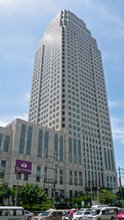
While the tourism industry worldwide is being buffeted by the economic crisis and swine flu, Thailand’s hoteliers have their own special problems, such as persuading guests that airports would stay open and protesters won’t invade the premises.
Bookings, especially at five-star establishments, have been down since December when anti-government protesters called yellow shirts seized Bangkok’s two international airports, closing the capital to international travel for 10 days and leaving hundreds of thousands of tourists stranded.
Then, last month, a rival group of anti-government protestors called red shirts invaded the posh Royal Cliff Beach Beach Resort in Pattaya, south-east of Bangkok, forcing the cancellation of a regional summit of Asian leaders who had gathered there.
“In December, the yellow shirts shot themselves in the foot, and then last month, the red shirts shot themselves in the head,” soon-to-retire Kurt Wachtveitl said at an event marking his 42 years as general manager of the famed Oriental Hotel in Bangkok.
“There is simply no one coming anymore - or nobody with money,” Wachtveitl said. “It’s the perfect storm, particularly for Thailand.” And particularly for five-star establishments.
Although statistics are hard to come by - tourist arrival figures have been elusive in Thailand ever since the Tourism Ministry took over the job of compiling them from the Tourism Authority of Thailand - Thai hotels are definitely hurting this year.
First-quarter earnings of the hotel groups listed on the Stock Exchange of Thailand were down by an average of 70% with some of them in the red.
“This is the worst year I’ve seen in my 25 years in the business,” Surapong Techaruvichit, vice president of the Thai Hotels Association, said, citing the industry’s litany of problems - the recession, swine flu and Thai political instability.
Thailand is hardly a stranger to political unrest. The kingdom has experienced 18 coups in the past 76 years, the latest of which took place in September 2006.
“In the past, the political upheavals lasted two to three days, so there was a shock, and then little by little, things returned to normal,” Surapong said. “But for this one, the shock is long. The closure of the airports and the Pattaya disturbances - these surprised everyone.”
According to Surapong, Thai hotel occupancy rates in May were down 50% compared with the same month last year.
Hotels are slashing prices and offering deals, making Thailand a cheap destination again after years of rising prices and healthy profits for the industry.
“Since 1998 to last year, the hotel industry went through a fantastic run,” said Andrew Langdon, senior vice president of Jones Lang LaSalle (Thailand), an international property consultant.
Langdon predicted that some hotels, especially the family-managed ones, might look for buyers this year or international brand management in response to the current downturn.
“Basically, the good times for the hotel industry are over for a year or two,” Langdon said. But nobody is expecting any fire sales.
“I would say everyone is suffering in this current crisis, but I haven’t seen any major bargains,” property consultant CB Richard Ellis chairman David Simister said.
One reason Thai hoteliers are unlikely to be selling their properties cheap is the tremendous confidence many have in Thailand as a tourist destination despite its current political problems.
“Thailand is down, but it’s not out,” said John Koldowski, head of research at the Pacific Asia Travel Association.
Source: Gulf Times 16 May 2009


No comments:
Post a Comment